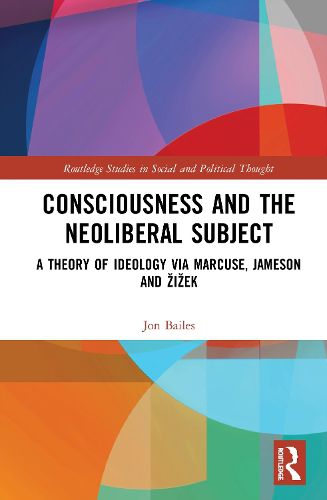Readings Newsletter
Become a Readings Member to make your shopping experience even easier.
Sign in or sign up for free!
You’re not far away from qualifying for FREE standard shipping within Australia
You’ve qualified for FREE standard shipping within Australia
The cart is loading…






Consciousness and the Neoliberal Subject outlines a theory of ideological function and a range of ideological positions according to which individuals rationalise and accept socio-economic conditions in advanced consumer capitalist societies. Through a critical examination of the social and psychoanalytic theories of Herbert Marcuse, Fredric Jameson, and Slavoj Zizek, the author extends the understanding of ideology to consider not only the unconscious attachment to social relations, but also the importance of conscious rationalisation in sustaining ideologies. In this way, the book defines different ideologies today in terms of the manner in which they conditionally internalise a dominant neoliberal rationality, and considers the possibility that entrenched social norms may be challenged directly, through conscious engagement. It will appeal to scholars of social and political theory with interests in ideology, neoliberalism, psychoanalytic thought and critical theory.
$9.00 standard shipping within Australia
FREE standard shipping within Australia for orders over $100.00
Express & International shipping calculated at checkout
Consciousness and the Neoliberal Subject outlines a theory of ideological function and a range of ideological positions according to which individuals rationalise and accept socio-economic conditions in advanced consumer capitalist societies. Through a critical examination of the social and psychoanalytic theories of Herbert Marcuse, Fredric Jameson, and Slavoj Zizek, the author extends the understanding of ideology to consider not only the unconscious attachment to social relations, but also the importance of conscious rationalisation in sustaining ideologies. In this way, the book defines different ideologies today in terms of the manner in which they conditionally internalise a dominant neoliberal rationality, and considers the possibility that entrenched social norms may be challenged directly, through conscious engagement. It will appeal to scholars of social and political theory with interests in ideology, neoliberalism, psychoanalytic thought and critical theory.